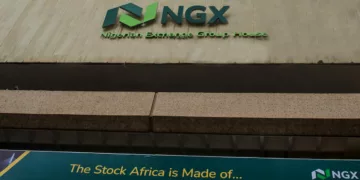Marketing director of Marketing Edge Publication, Anietie Udoh said, content strategy and brand visibility must be more than Search Engine Optimisation (SEO), especially, in a digital landscape that is evolving faster than many marketers can keep up with.
Speaking candidly with the authority of someone who has lived through several marketing evolutions, Udoh dismantles the illusion that ranking on Google is the holy grail of digital growth.
Udoh buttressed that, content marketing is changing, adding that, “If you’re still depending only on Google rankings and keywords to grow your business, it may no longer work like it used to. And I don’t say this to sound dramatic; I say it because the game has changed.
“Not too long ago, dominating page one of Google search results was every brand’s ultimate objective. Keyword research was the backbone of digital strategy. You could crank out blog posts, include the right number of keywords, and watch your traffic spike. That era built entire SEO agencies, content mills, and strategies that revolved around nothing more than clicks and metadata.”
But today, according to Udoh, that approach is dangerously outdated.
“People now get answers without even clicking your website. AI tools like ChatGPT, Google’s AI Overviews, and others are giving people direct answers. Your audience is finding what they need without ever visiting your site. And that changes everything,” he said.
Udoh draws attention to a significant cultural shift: people no longer begin and end their search journey on Google, saying, “In Nigeria, and much of the world, search behaviour has evolved. A consumer looking for a service, say, a POS system or a loan app, is more likely to check WhatsApp groups, ask friends directly, scroll through Instagram Reels, or watch a quick explainer on TikTok.
“We need to realise that content isn’t just about being found,” Udoh says. “It’s about being useful. It’s about being believed. You can rank on page one and still lose the customer, because they trust a TikTok creator more than a blog they’ve never heard of. This behavioural trend is especially true in Africa, where peer recommendation holds weight. Trust is built through familiarity and human connection, not just SERPs.”
At the heart of Udoh’s argument is the idea that brands must move beyond ‘answering search queries’ to actively creating demand. He argued that, high-impact content introduces a new awareness, it opens people’s eyes to their own unspoken problems and then positions your brand as the answer. This kind of content doesn’t need to chase keywords. It just needs to resonate with human beings.
Too often, brands are caught in the loop of looking for external tools to mine keywords, while ignoring the insights already available within their own business.
“Your sales team is talking to your customers every day. So is your customer care desk. They know the real questions, the real objections, the real confusion,” Udoh said.
He gives a compelling example: if customers constantly visit your “loan options” page but aren’t converting, the problem may be clarity, not traffic. A better approach might be to create content titled: “How to Know if This Loan Is Right for You”*, clear, helpful, and aimed at guiding real decisions.
Publishing great content on your blog is no longer enough. Distribution is half the battle. And it’s not just about where you post, but how you tailor your content to fit each channel.
Udoh recommends choosing 2–3 strategic platforms, such as: LinkedIn for B2B engagement and thought leadership, Instagram/TikTok for casual education and brand awareness, WhatsApp for direct access to community circles and word-of-mouth reach, Email newsletters for nurturing warm leads and YouTube for more in-depth product explainers or how-to guides






